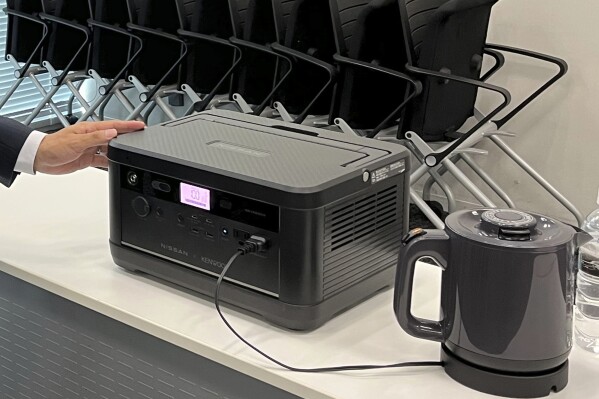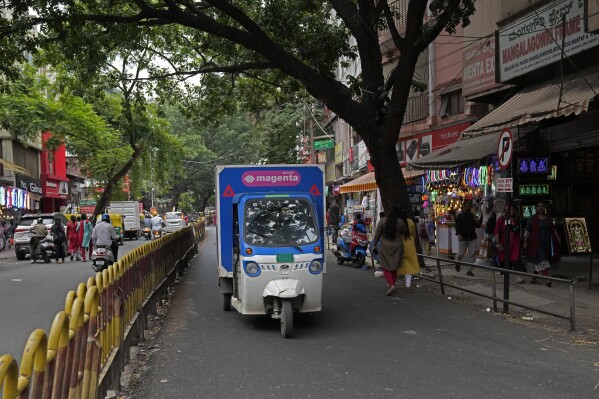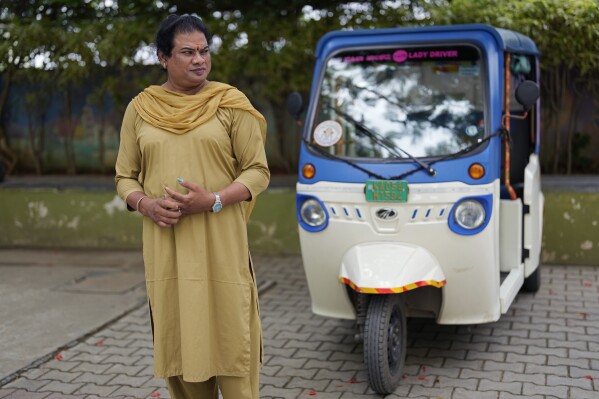Hyundai and LG will invest an additional $2B into making batteries at Georgia electric vehicle plant
SAVANNAH, Ga. (AP) — Hyundai Motor Group and LG Energy Solution said Thursday they will spend an additional $2 billion and hire an extra 400 workers to make batteries at the automaker’s sprawling U.S. electrical vehicle plant that’s under construction in Georgia.
The announcement by the South Korea-based companies — one a major automaker, the other a leading producer of lithium-ion batteries used to power electric vehicles — expands on a partnership they launched three months ago to produce batteries at the same site west of Savannah, where Hyundai plans to start EV production in 2025.
The news Thursday brings the companies’ total investment in the Georgia plant to more than $7.5 billion and the site’s overall planned workforce to 8,500.
“This incremental investment in Bryan County reflects our continued commitment to create a more sustainable future powered by American workers,” José Muñoz, president and global chief operating officer of Hyundai Motor Company, said in a statement.
 Nissan is reusing the batteries from old Leaf electric vehicles to make portable power sources
Nissan is reusing the batteries from old Leaf electric vehicles to make portable power sources
 India is one of the world’s fastest-growing EV markets. This is why
India is one of the world’s fastest-growing EV markets. This is why
 This trans woman was begging on India’s streets. A donated electric rickshaw changed her life
This trans woman was begging on India’s streets. A donated electric rickshaw changed her life
Hyundai said in 2022 it would invest $5.5 billion to assemble electric vehicles and batteries on 2,900 acres (1,170 hectares) in the community of Ellabell.
It’s not clear whether the additional investment and jobs announced Thursday mean the Hyundai/LG battery plant will produce more batteries. When the joint venture was first announced in May, the companies said they would supply batteries for 300,000 EVs per year — equal to the initial projected production of the adjoining vehicle assembly plant.
Hyundai has said the Georgia plant could later expand to build 500,000 vehicles annually.
It also wasn’t clear whether the state of Georgia and local governments were kicking in additional incentives. They have already pledged $1.8 billion in tax breaks and other perks. It’s the largest subsidy package a U.S. state has ever promised an automotive plant, according to Greg LeRoy, executive director Good Jobs First, a group skeptical of subsidies to private companies.
Landing Hyundai’s first U.S. plant dedicated to EV manufacturing was hailed as the largest economic development project in Georgia’s history when it was first announced last year. Since then, suppliers have pledged to invest nearly $2.2 billion and to hire 5,000 people.
“Today, we’re building on that success as we continue to make Georgia the e-mobility capital of the nation,” Georgia Gov. Brian Kemp said in a statement hailing Hyundai and LG’s additional investment in the plant.
The announcements are part of an electric vehicle and battery land rush across the United States. Under the U.S. Inflation Reduction Act, EVs must be assembled in North America, and a certain percentage of their battery parts and minerals must come from North America or a U.S. free trade partner to qualify for a full $7,500 EV tax credit.
Currently, no Hyundai or Kia vehicles are eligible for the tax credit unless they are leased. Hyundai opposed having foreign-made vehicles excluded, in part because it’s building American factories.
Hyundai will need batteries for more than just vehicles made in Ellabell. The company is already assembling electric vehicles at its plant in Montgomery, Alabama, and announced in April it would start assembling its electric Kia EV9 large SUV at the Kia plant in West Point, Georgia.
__
Jeff Amy reported from Atlanta.
Disclaimer: The copyright of this article belongs to the original author. Reposting this article is solely for the purpose of information dissemination and does not constitute any investment advice. If there is any infringement, please contact us immediately. We will make corrections or deletions as necessary. Thank you.



